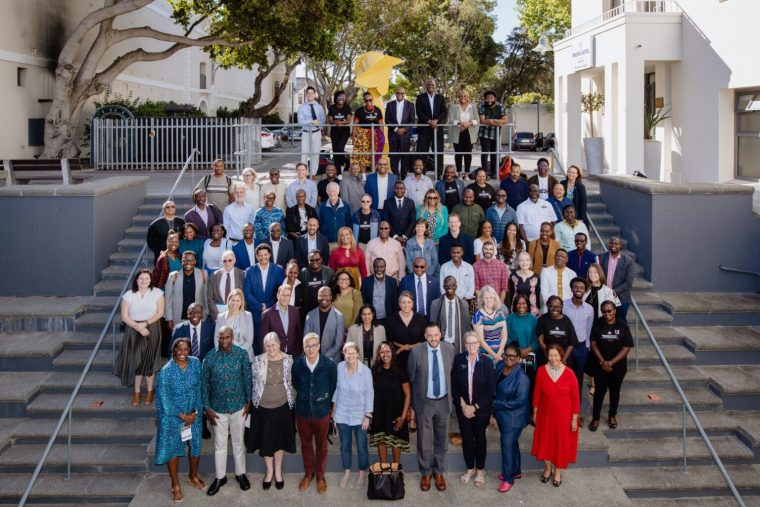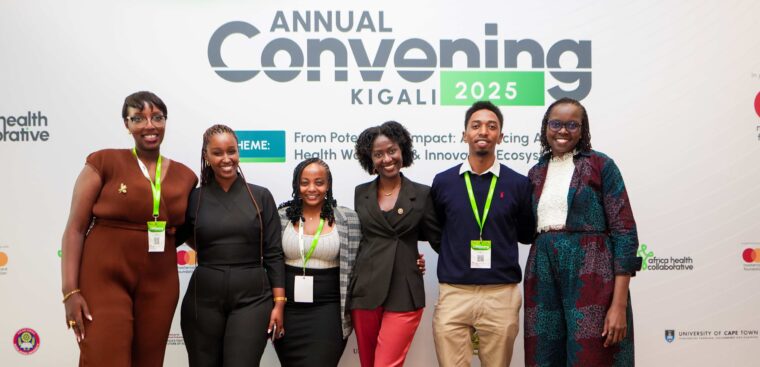Last October, over 170 policymakers, health experts, academics, and youth innovators from 14 countries came together for the Africa Health Collaborative’s (AHC) 2025 Annual Convening, hosted by the African Leadership University (ALU) in Kigali, Rwanda.
The gathering set a bold plan to contribute towards transforming Africa’s health systems through scaling youth-led innovation, advancing workforce development, strengthening policy, and deepening regional and international collaboration. The impactful convening, held under the theme, ‘From Potential to Impact: Advancing Africa’s Health Workforce and Innovation Ecosystems,’ featured in-depth peer learning, expert dialogues, and showcases focused on workforce resilience, entrepreneurship, and applied health innovation.
Distinguished guests included Veda Sunassee, CEO of ALU; Ivan Ntwali, Rwanda Country Director at the Mastercard Foundation; Ashley Collier, Director, Special Programs at the Mastercard Foundation; Dr. John Nkengasong, Executive Director, Higher Education, Collaboratives, & Strategic Initiatives at the Mastercard Foundation; and Jeanne Umuhire, Deputy Director of the Rwanda Biomedical Centre, among many other influential healthcare leaders from across the continent and beyond.
In his opening address, Veda Sunassee, CEO of the ALU, highlighted the enduring relationship between his institution and other AHC partners:
“This convening sits squarely within the framework of ALU – health is a social good, and an economic engine. It creates jobs, it drives innovation and demands leaders who blend empathy with execution. Universities, like ours and all of our partners in the collaborative, must be catalysts for training young people for digital fluency, entrepreneurial problem solving, and systems thinking.”
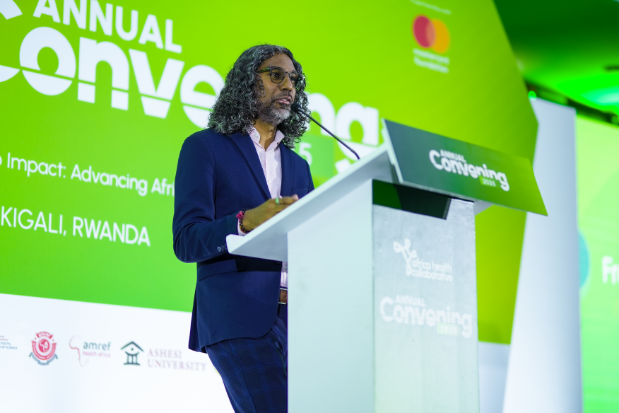
CEO of ALU
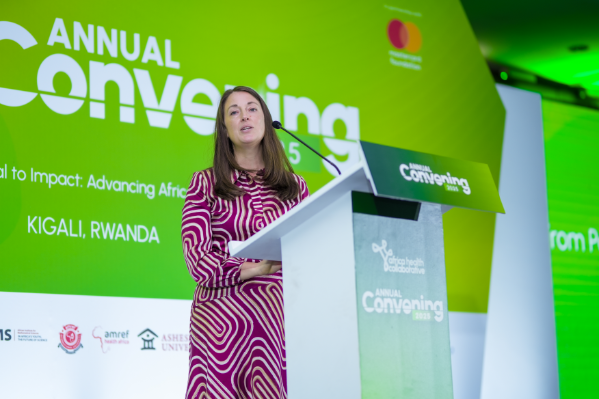

Delivering the keynote address, Jeanne Umuhire, Deputy Director of the Rwanda Biomedical Centre, reaffirmed Rwanda’s national commitment to innovation and workforce growth, with a plan to quadruple the national health workforce by 2028. She highlighted successful local innovations, such as the Zipline drone delivery system for medical supplies, as proof of what African-led ingenuity can achieve. However, she warned, ‘Without long-term investment in local innovation, we risk building health systems that are unsustainable without foreign aid’. Her speech urged stakeholders to align initiatives with national health priorities and invest in homegrown solutions that ensure long-term impact and ownership.
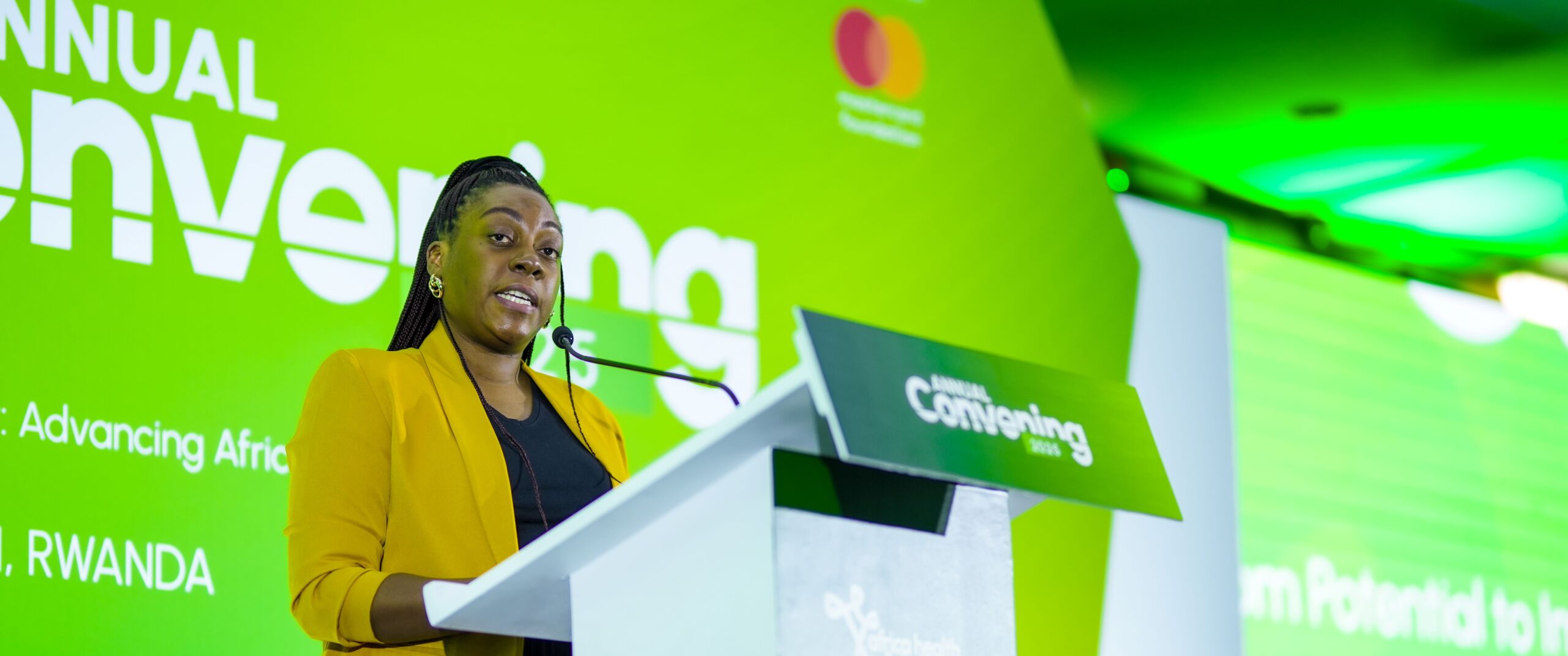
Key Outcomes
Advancing Policy and Health Workforce Reform
A standout outcome from the convening was the launch of bold continental policy proposals to address systemic barriers to health workforce employment and mobility. Participants called for the creation of an African Health Workforce Mobility Framework. This integrated system enables health talent to work across borders by leveraging existing regional agreements, such as the African Continental Free Trade Area, and collaborating with regulators and networks like the AHC to harmonize accreditation and support cross-border deployment. Delegates also championed a “whole-of-government” approach that aligns the health, education, and labour ministries to close workforce gaps and ensure that training leads to meaningful employment.
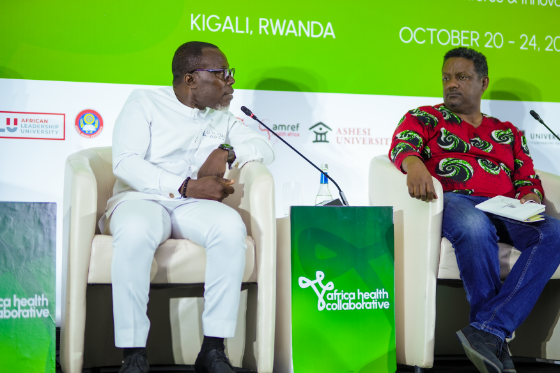

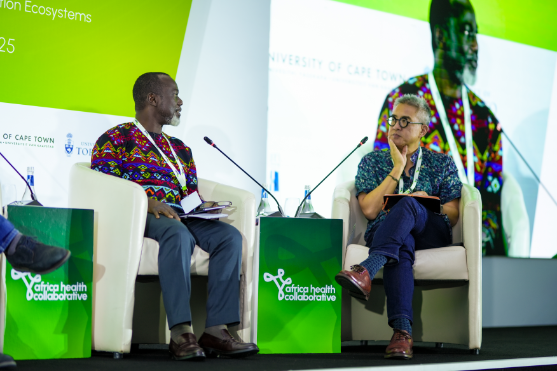
Panellists, including Prof. Ellis Owusu-Dabo, former Pro-Vice-Chancellor of the Kwame Nkrumah University of Science and Technology, emphasized that Africa’s health workforce challenge is one of surplus and scarcity existing simultaneously, and requiring better coordination. In Ghana alone, more than 45,000 trained nurses remain unemployed, highlighting a clear mismatch between training outputs and the needs of the health system.
Empowering Faculty and Reforming Curriculum
Sessions on faculty development and curriculum reform highlighted the need to align Africa’s health education systems with modern workforce realities. Key recommendations included:
- Strengthening regional collaboration under AHC to promote mentorship, co-teaching, and knowledge-sharing;
- Revolutionizing curricula to prepare graduates not just for jobs, but for job creation – including by integrating digital health, AI, and systems thinking, and renewed focus on leadership training;
- Institutionalize continuous faculty development through clear policy frameworks, funding, and incentive structures.
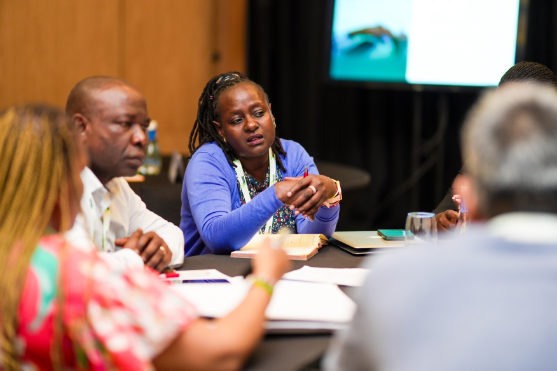

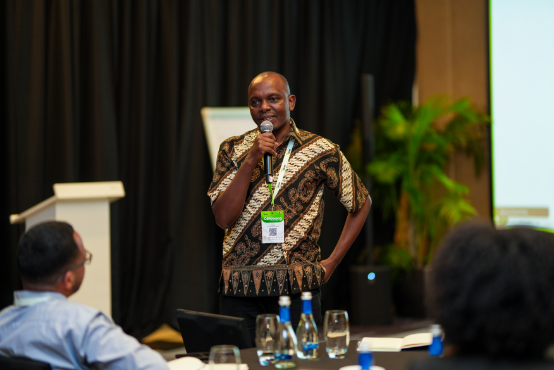
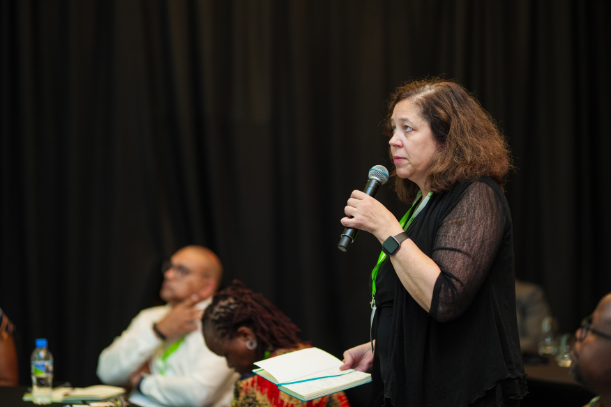
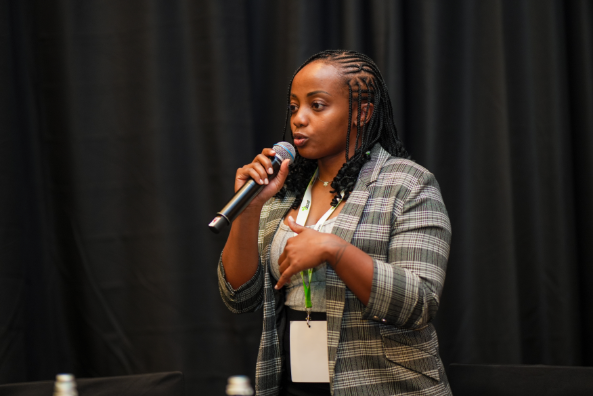

Community Health and Rural Innovation
Discussions also underscored the importance of inclusive healthcare models for rural and underserved populations. Recommendations included:
- Strengthening task-sharing and telemedicine to close workforce gaps;
- Formalizing community health worker pathways to professionalize and fairly compensate these essential roles;
- Integrating local and indigenous knowledge into healthcare curricula;
- Investing in digital infrastructure and blended learning for rural practitioners.
Investing in Youth Entrepreneurship
The convening also featured a transformative Founders’ Showcase. Philanthropists, founders, funders and healthcare experts were introduced to burgeoning enterprises that covered healthcare innovations ranging from menstrual care to digital healthcare systems and healthcare supply chain optimization.
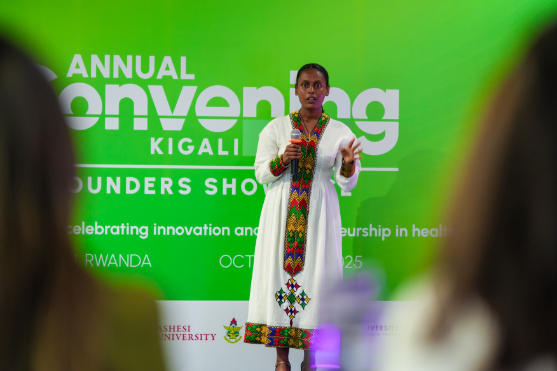

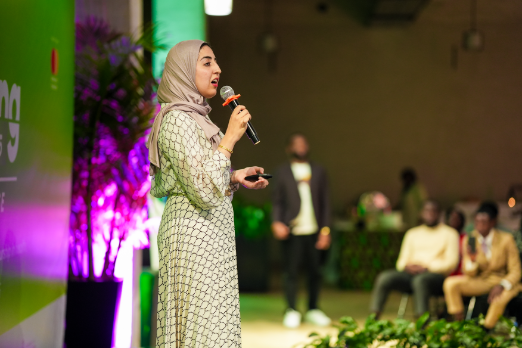
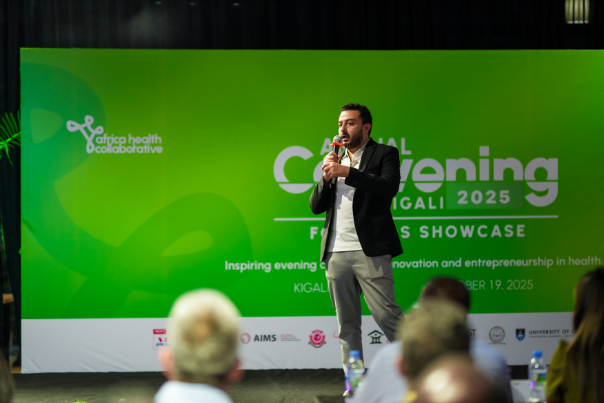

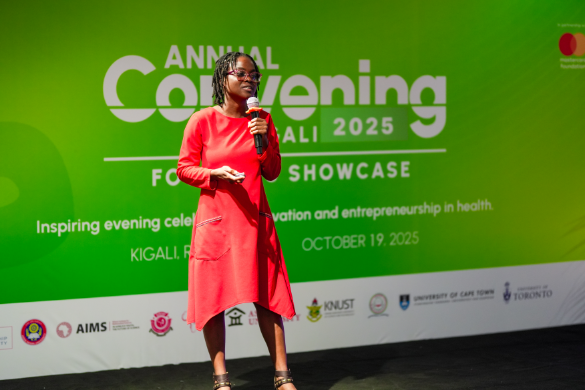
Dr Nhlanhla Thwala, outgoing AHC Executive Steering Committee Chair and Vice-President of ALU, emphasized the importance of the AHC’s mission to create 20,000 jobs and “expand access to quality care to communities across the continent.”
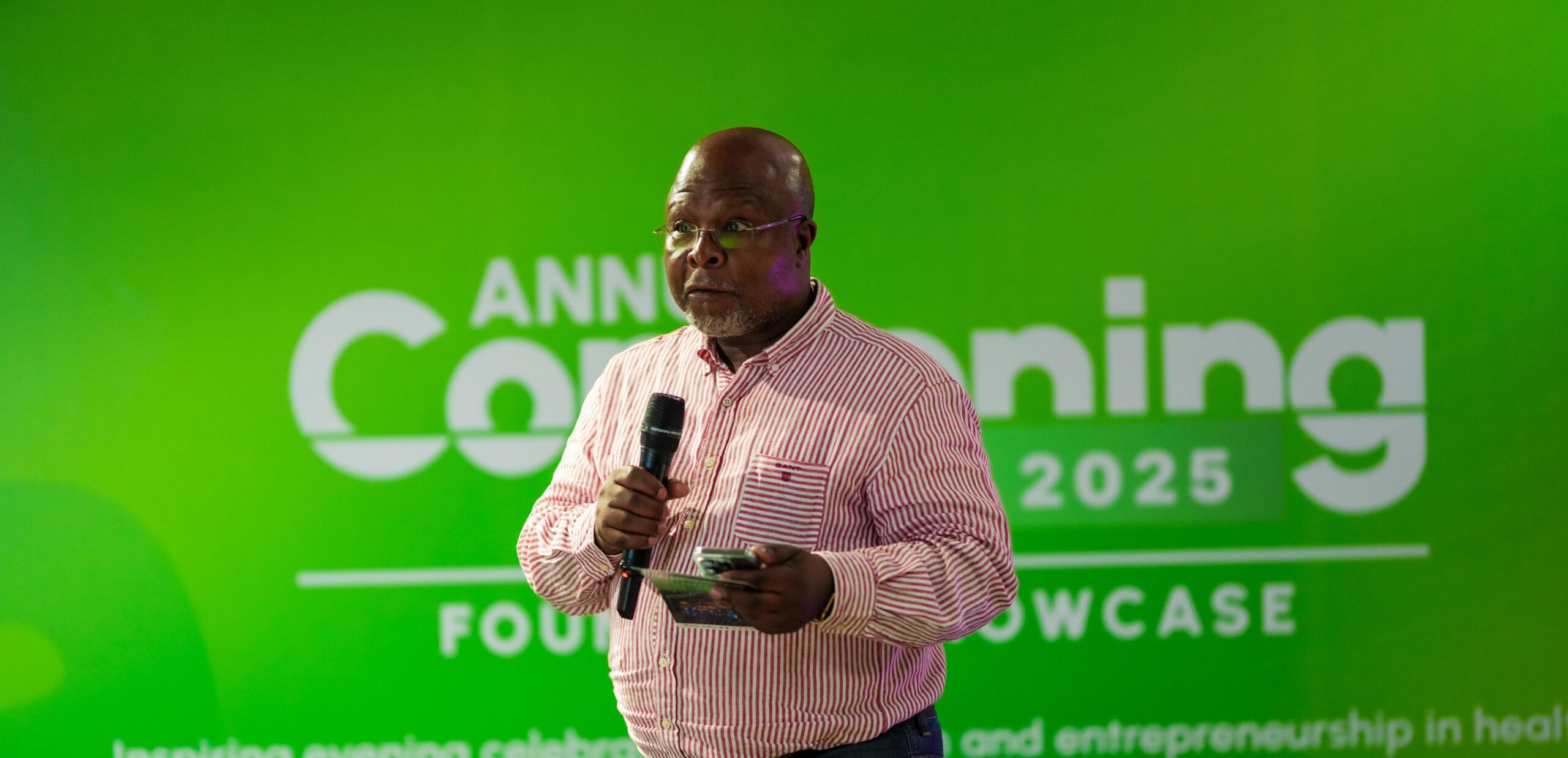
Looking Ahead
Commitments and Key Outcomes
Building on progress from previous years, the convening produced tangible institutional and policy commitments for 2026. These include new scholarships, research collaborations, policy dialogues, internships, and innovation investments to strengthen primary healthcare (PHC) systems across Africa.
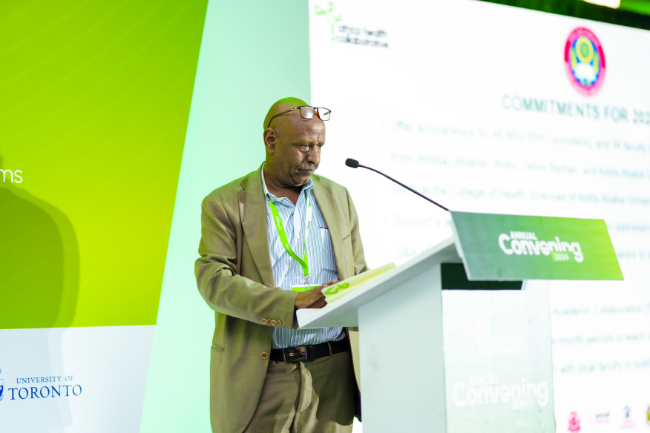

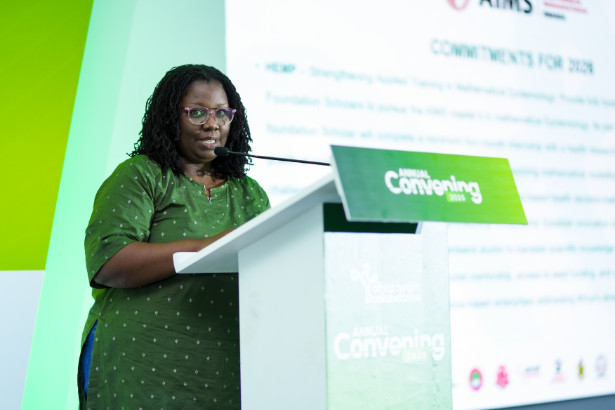
Innovation, Technology & Digital Health
- African Leadership University (ALU): Partner with an African health sandbox to test and scale innovative health ventures; expand internship opportunities.
- Amref Health Africa & Amref International University (AMIU): Establish an Innovation Centre focused on digital, cost-effective health solutions.
- Ashesi University: Create an AI virtual lab to strengthen health education and boost investment in health ventures.
- Kwame Nkrumah University of Science and Technology (KNUST): Launch an AI in Health program and a founders’ mentoring academy.
- University of Toronto (U of T): Champion a venture fund to support health ventures across the AHC and deepen collaboration.
Capacity Building, Training & Scholarships
- Addis Ababa University (AAU): Provide 80 graduate scholarships; launch a national primary healthcare (PHC) radio program.
- African Institute for Mathematical Sciences (AIMS): Fund 57 Mastercard Foundation Scholars for MSc programs in Mathematical Epidemiology.
- University of Cape Town (UCT): Introduce internship and work-readiness programs targeting at-risk youth; establish youth advisory committees.
Community Health, Indigenous Knowledge & Entrepreneurship
- Moi University: Complete a botanical garden to collaborate with traditional healers and advance indigenous medicine and entrepreneurship; partner with students and county governments on innovative livelihood-improving programs.
Passing the Mantle: A Symbolic Transition to Kenya
To close, in a ceremony led by Professor Thwala, the Collaborative presented traditional Rwandan attire, a shield and spear, and a carved map of Africa – symbols of leadership, guardianship, and continental stewardship – to Professor Joachim Osur, Vice Chancellor of AMREF International University, signifying the 2026 hosting transition to Kenya. Professor Osur was confirmed as the new Steering Committee Chair and Amref Health Africa as the next host of the AHC annual convening.
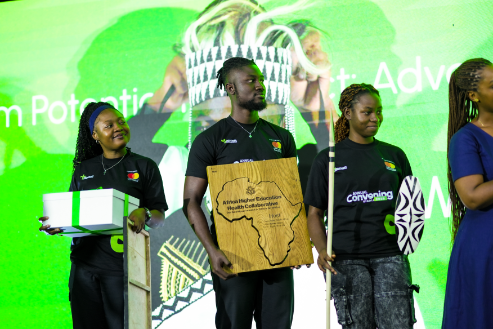
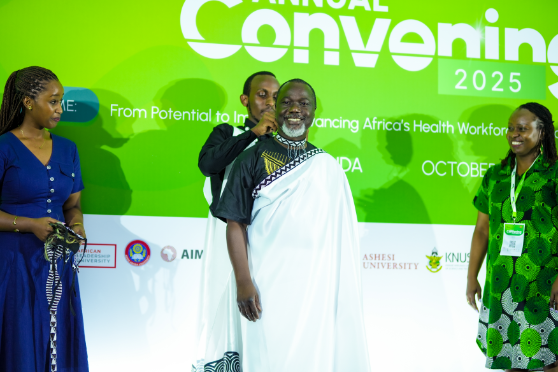
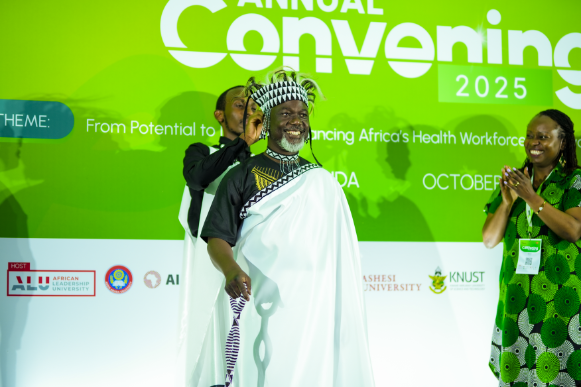
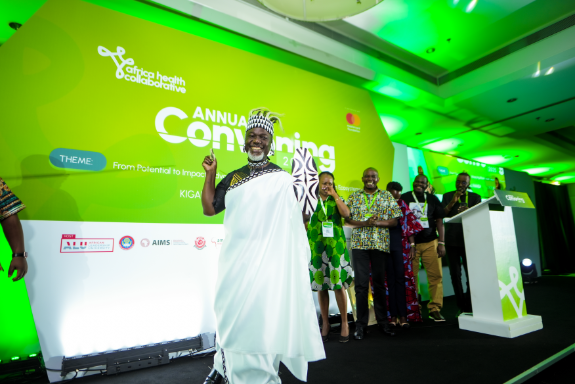


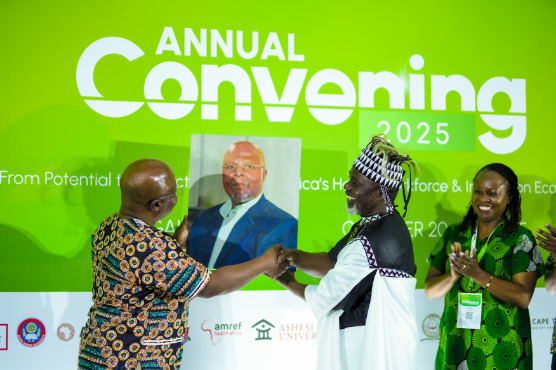

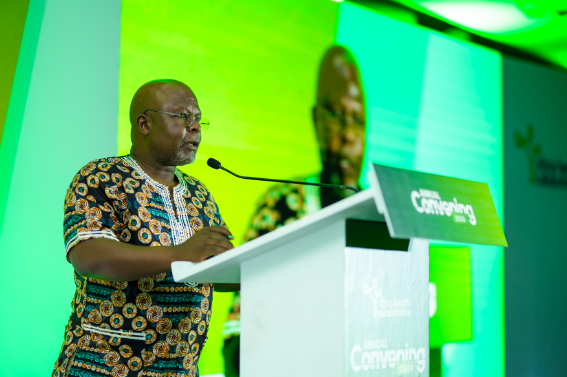
Watch the recap
Opening Ceremony and Policy Dialogue
Founders Showcase Highlights
More News & Events
Skip scroller contentDignity, Data, and Disruption in Africa’s Health Systems: A Young Leader’s Reflection
John Nyagaka, a Mastercard Foundation Scholar and AHC Young Leaders Table Chair, reflects on his transformative experience at the 2025 Annual Convening.
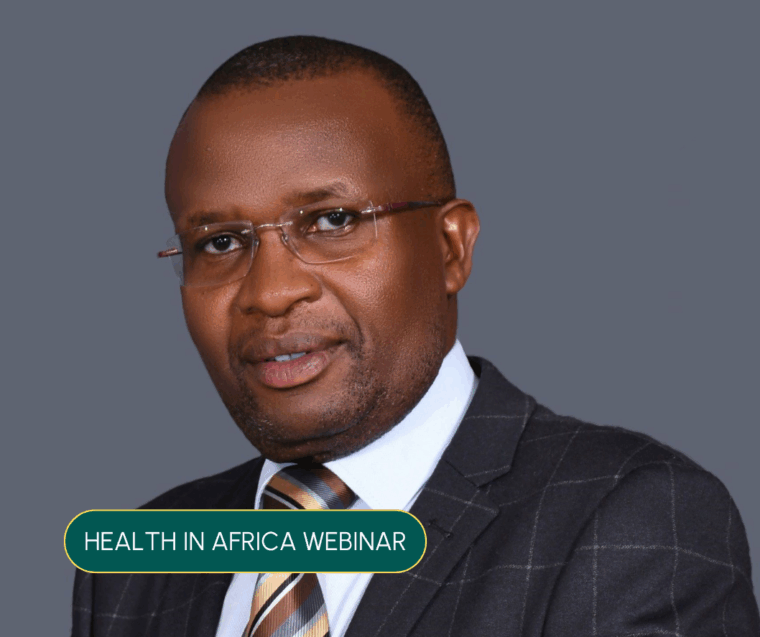
What Works: Improving Maternal and Newborn Health in Kenya and Ethiopia
Join this webinar to explore how community-led systems and digital innovations, in partnership with local leaders, are scaling sustainable healthcare impact and delivering life-saving care for mothers and their newborns.

Apply for the AIMS Master’s in Mathematical Epidemiology (MathEpi) Scholarship
Apply for the 2025 AIMS MathEpi Master’s program. Fully funded scholarships for African students in statistics and public health. Deadline: March 15.

Apply for KNUST’s CPD-Eligible Short Courses in Health Systems and Services Management
Applicants must meet the following requirements to qualify for the scholarship: Short Courses and Timelines 23rd – 27th February 2026: Emergency Preparedness and Response to Epidemic/Pandemic-Prone Diseases 10th – 14th February 2026: Community Emergency Care 24th – 27th February 2026: Palliative Care Module 1 23rd – 27th March 2026: Introduction to Healthcare Quality Improvement (IQI) […]
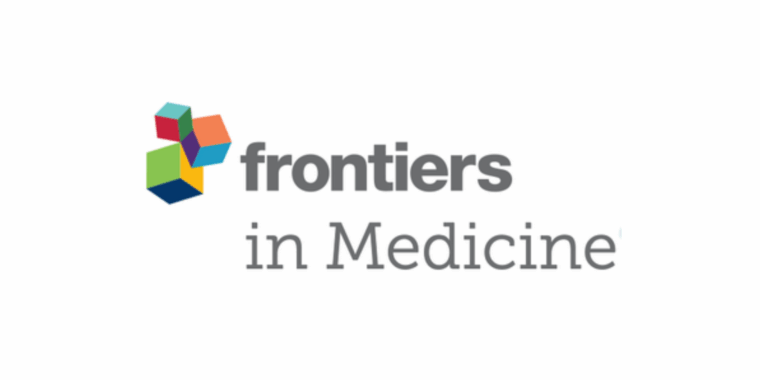
Call for Insights & Stories: Frontiers Opens Special Collection for AHC Partners
The Africa Health Collaborative (AHC) is pleased to share an exciting opportunity for all AHC institutional partners to share original research, reviews, case studies, policy briefs, perspectives, and reflective pieces in a new article collection titled “United in Partnership: Academic Collaborations for Primary Health Care Transformation” by Frontiers in Medicine. This special collection is being […]
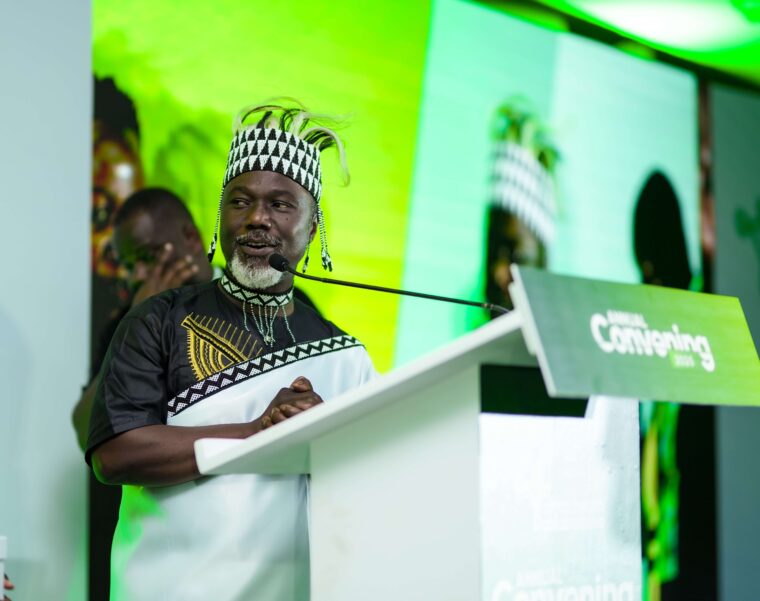
A New Chapter of Collaboration: AHC Welcomes Prof. Joachim Osur as Executive Steering Committee Chair
The Africa Health Collaborative (AHC) has announced Prof. Joachim Osur, Vice Chancellor of Amref International University, as the new Chair of the Executive Steering Committee (ESC). The symbolic handover took place during the closing ceremony of the 2025 AHC Convening in Rwanda, held in October 2025. This marks a significant leadership transition from Prof. Nhlanhla […]

Engineering Dignity: Designing Low-Cost Prosthetics in the University of Cape Town’s MedTech Lab
Read about how Jemila Abdulai’s internship at UCT’s MedTech Lab strengthened her commitment to human-centered engineering, demonstrating how affordable innovations like the ADL Arm can expand access, restore dignity, and transform lives in underserved communities.

Graduate Scholarship Opportunities at the Kwame Nkrumah University of Science and Technology
Apply for graduate (MPh, MSc, MPhil, PhD) scholarships at the Kwame Nkrumah University of Science and Technology.
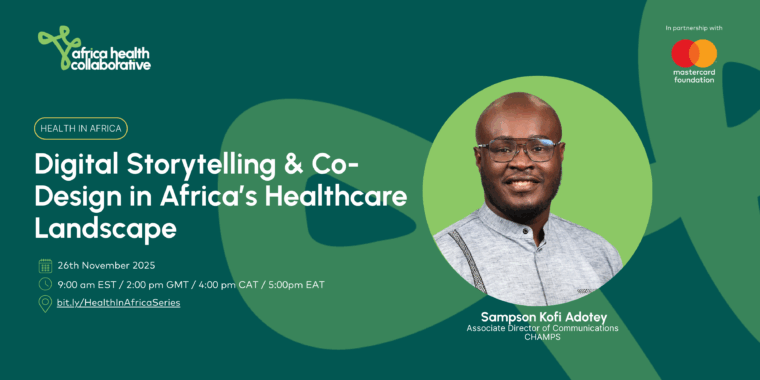
Digital Storytelling & Co-Design in Africa’s Healthcare Landscape
Join this webinar to explore how Digital Storytelling (DST) and Co-Design can transform health systems by centering the people who live the stories.
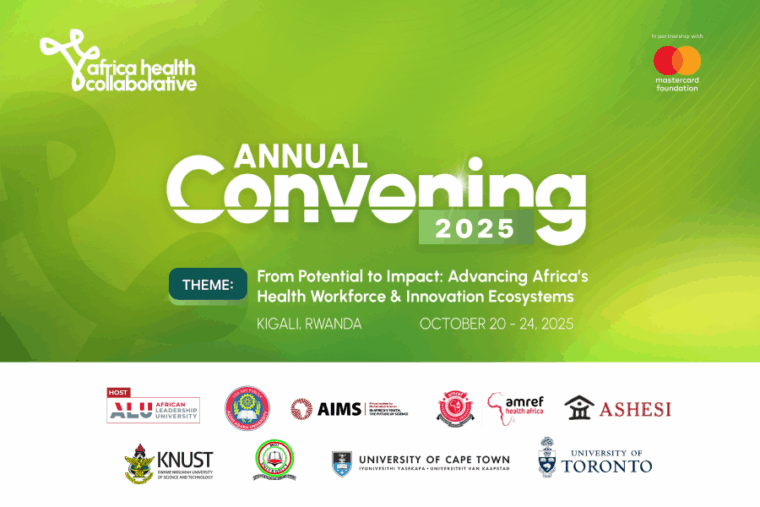
Africa Health Collaborative Convening to Spotlight Youth, African-Led Innovation, and Systems Change in Primary Health Care
The 2025 Convening will bring together leaders and innovators from government, academia, civil society, and the private sector to explore practical solutions for strengthening Africa’s primary health care systems through workforce development, entrepreneurship, institutional collaboration, and innovation.
